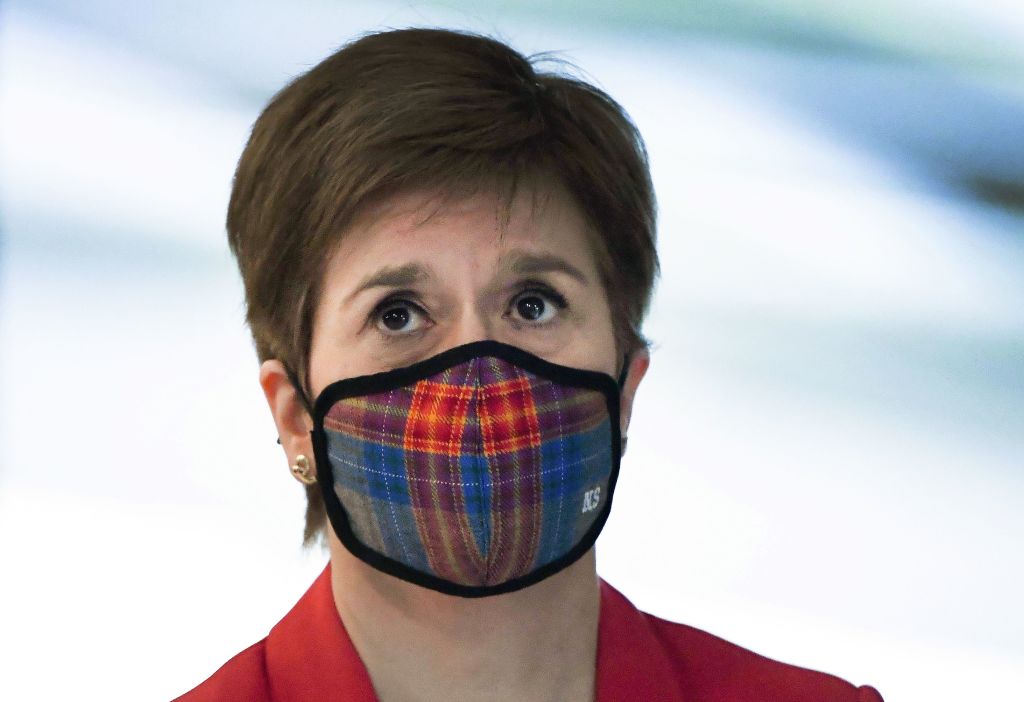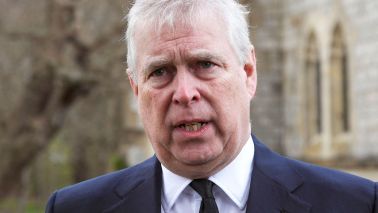The Scottish government has suffered a major reversal in court over its Covid-19 regulations. The Court of Session has found its blanket ban on public worship to be unlawful. In January, Nicola Sturgeon closed places of worship across Scotland ‘for all purposes except broadcasting a service or conducting a funeral, wedding, or civil partnership’. She said at the time that, while ministers were ‘well aware of how important communal worship is to people… we believe this restriction is necessary to reduce the risk of transmission’.
Canon Tom White, parish priest of St Alphonsus in Glasgow’s east end, and representatives of other Christian denominations, sought judicial review. They argued that this closure imperilled the independence of the Church, that ministers lacked the power to shut churches in any circumstances, and that the regulations were unlawful and disproportionately interfered with the right to manifest religious belief under article nine of the ECHR.
They accepted there was a legitimate aim in controlling the pandemic but that ministers had not pursued the least restrictive means of doing so. They pointed out that churches had already taken precautions and that the Scottish government could have restricted worship rather than banning it outright by limiting church attendance or permitting only private prayer. The government disagreed, saying their rules went to matters health, not spiritual, and while the article nine right had been frustrated it was only in a limited way since online worship was available.
Lord Braid’s judgment is finely balanced in legal reasoning but damning for the government. He rejected the idea there were no circumstances under which the right to worship could be curtailed; however, any such regulation would have to be proportionate. This is where the Scottish government’s rules fell foul of the law.
He ruled that ministers had ‘failed to show that no less intrusive means than the regulations were available to address their aim of reducing risk to a significant extent’ and had not ‘demonstrated why there was an unacceptable degree of risk by continuing to allow places of worship which employed effective mitigation measures and had good ventilation to admit a limited number of people for communal worship’.
Canon White was already something of a hero to Scotland’s Catholics
The Scottish government could not convince the court that it had reason to assume churches, having acted responsibly throughout, would suddenly stop doing so. Nor could it explain why a blanket ban was required instead of guidance. Cuttingly, the court found the reasons given for not allowing even private prayer were ‘insufficient to withstand even the lowest degree of scrutiny’. In determining the proportionality of the decision, Lord Braid concluded: ‘[I]t is not clear to me that the blanket closure of all places of worship can be said to have contributed to a material reduction in risk’.
Here is where his judgment turns fairly brutal for ministers. He suggests the Scottish government does not understand the significance of article nine and has paid only ‘lip service’ to it:
‘[I]t is not clear that the respondents have fully appreciated the importance of article nine rights. They have admittedly paid lip service to article nine by referring to it, but there is no evidence that they have accorded it the importance which such a fundamental right deserves.’
Lord Braid characterises the Scottish Government’s view of whether churches remain open or not as ‘it doesn’t really matter’ because ‘those who wish to do so can go online’. However, he goes on to say:
‘[I]t is undeniable that certain aspects of certain faiths simply cannot take place, at all, under the current legislative regime: in particular, communion; baptism; and confession, to name but three. It is impossible to measure the effect of those restrictions on those who hold religious beliefs. It goes beyond mere loss of companionship and an inability to attend a lunch club.’
Although it had been pointed out that some churches support the restrictions, Lord Braid observes: ‘[I]t is hardly relevant that some do not object to their rights being interfered with, if others in the same position do’.
He saw merit in the government’s need for a clear, ‘bright line’ message on public health but suggested this had been ‘diluted by the other exceptions’. While he didn’t strictly concur with the suggestion that the Scottish government’s rules had ‘criminalised worship’, he said ‘the fact can hardly be denied that they may have that effect’, quite the statement for a judge to make.
No less stinging is his comment on the Scottish government’s sophistry about whether churches were even really closed. In February, Sturgeon told Holyrood that churches were ‘not closed, but the ability to worship normally and freely is restricted’. We were, in effect, Schrödinger’s Catholics: our chapels both open and closed. The government attempted this line in court. Lord Braid knocks this on the head with the terse tone of a headmaster who knows the scallywag before him is at it:
‘There can be no doubt that places of worship may not open for worship and in that sense it is jejune at best, misleading at worst, to state that places of worship remain open. They do not.’
While the judgment is likely to prompt the accusation that places of worship are receiving ‘special treatment’ from the courts, the ruling appears to do just the opposite. The court considered the current use of cinemas to house jury centres in criminal trials, which, like churches, ‘involve people from different households coming together repeatedly to congregate indoors in a confined area’.
Lord Braid questions whether ‘jury centres might be thought to carry more risk because the duration of contact is longer’ and notes that the characterisation of churchgoers in an affidavit from national clinical director Jason Leitch — that they may arrive either by public transport or car-pool and may congregated outside — also applies to jurors. There was, therefore, ‘at the very least an implicit acceptance by the respondents that meeting indoors can be safe if suitable mitigation measures are adopted’. Churches are not receiving special treatment but a belated remedy from treatment disproportionate to that received by other institutions.
Lord Braid ultimately concludes that the regulations ‘constitute a disproportionate interference with the article nine right of the petitioners and others’. As such, he said, they are ‘beyond the legislative competence’ of the Scottish government and represent ‘a disproportionate interference with the petitioners’ and additional party’s constitutional rights’.
Victory, then, to Canon White. Yet since the regulations are due to be eased from Friday anyway, it’s not clear what order the court might make in relation to the judgment.
However, on the point of law, it is a significant defeat for the Scottish government. The highest civil court in Scotland has said ministers broke the law to stop people gathering to worship God. It is a stark finding given the scope of powers the government has accrued under Covid regulations and the questions that have arisen about the impact on individual liberty of their implementation. It also joins named persons and the harassment procedure under which Alex Salmond was investigated as an example of the Scottish government rushing into policymaking or legislating and coming to rue it in a courtroom.
Incidentally, Canon White was already something of a hero to Scotland’s Catholics. He spoke forcefully against anti-Catholic prejudice after being attacked while an Orange march passed by his church in 2018. The canon had just finished celebrating Mass and was seeing his parishioners out when he was repeatedly spat upon and called ‘Fenian scum’. He later told how the redeployment of nearby police officers had left him and his congregation vulnerable. Now that he has secured this legal victory, his standing among Catholics and people of all faiths will only grow. The same cannot necessarily be said for the Scottish Government.







Comments